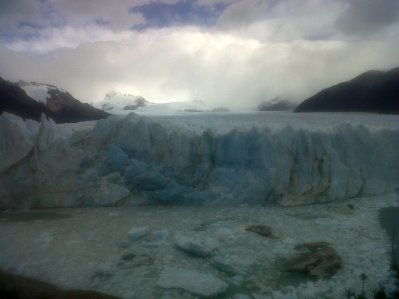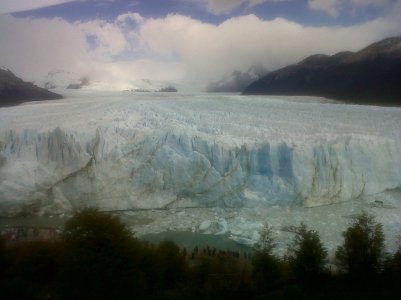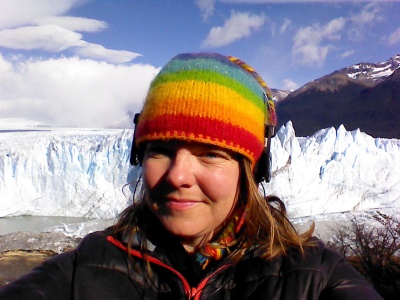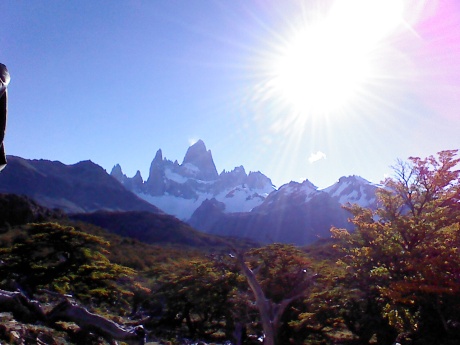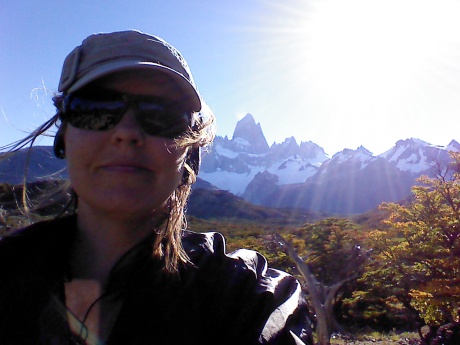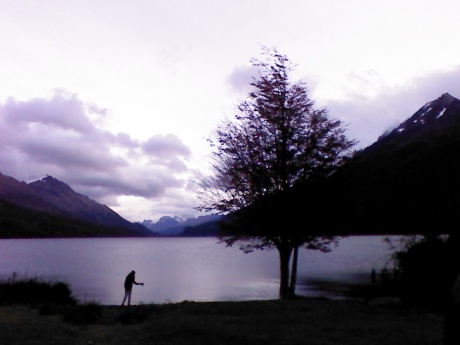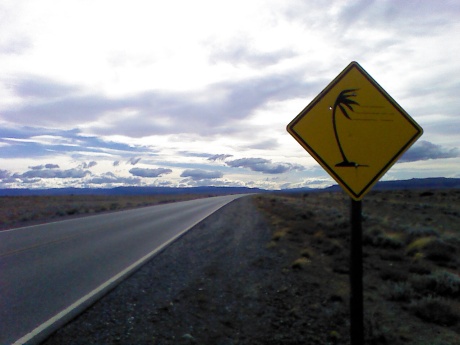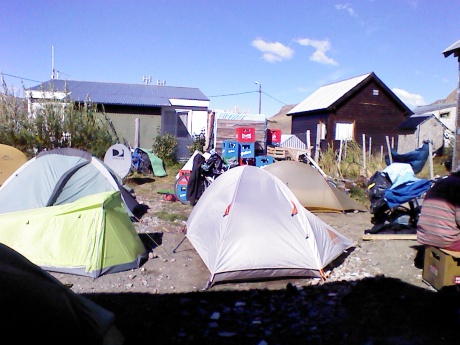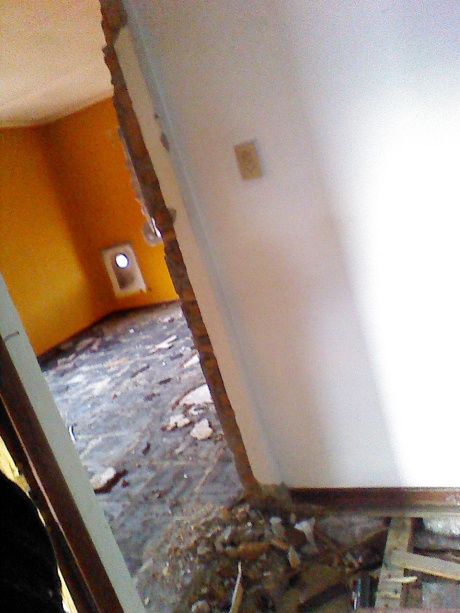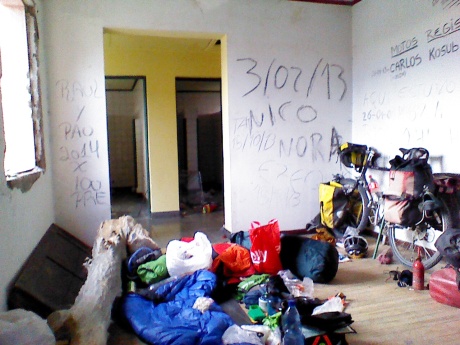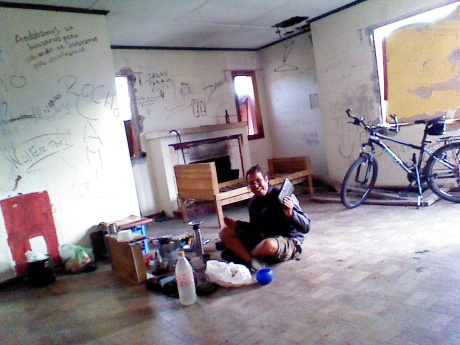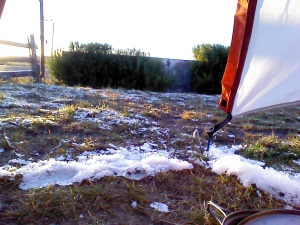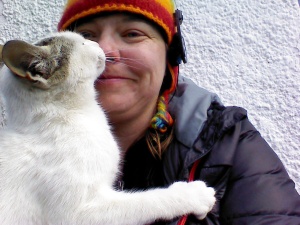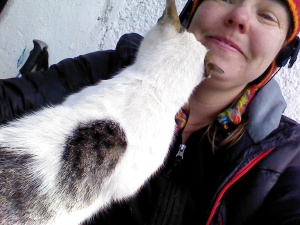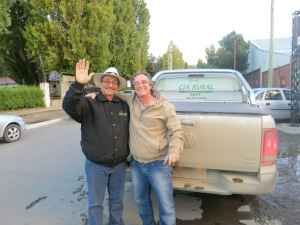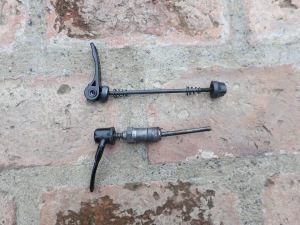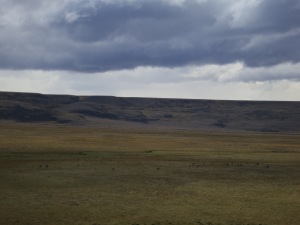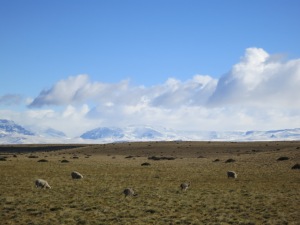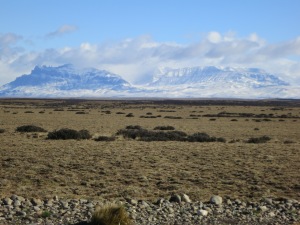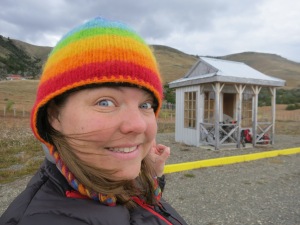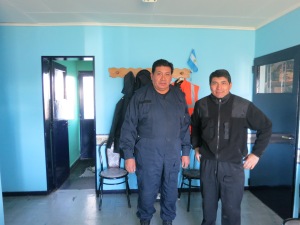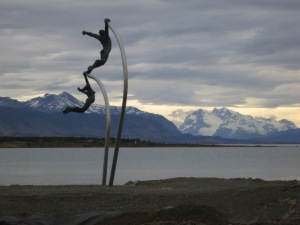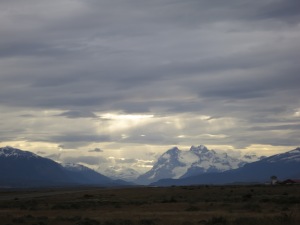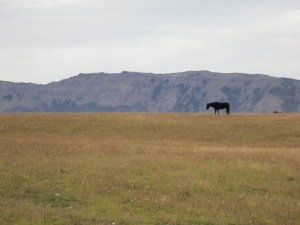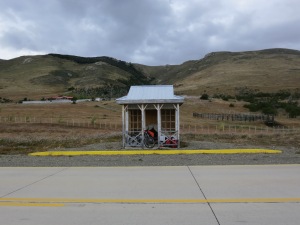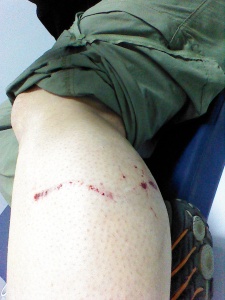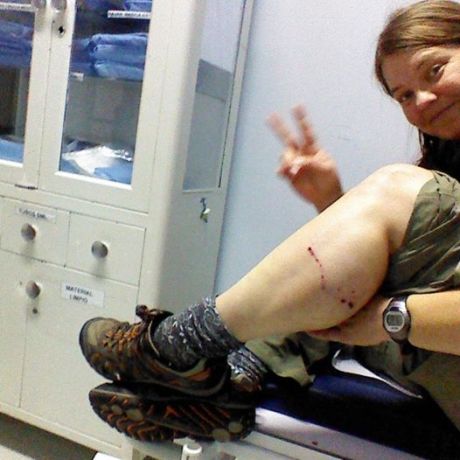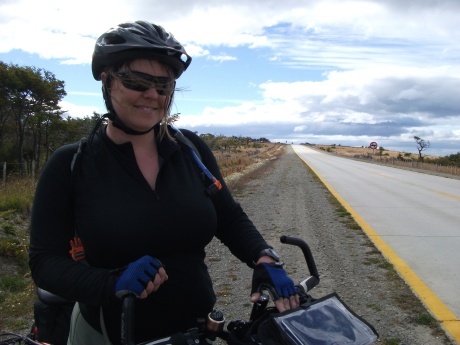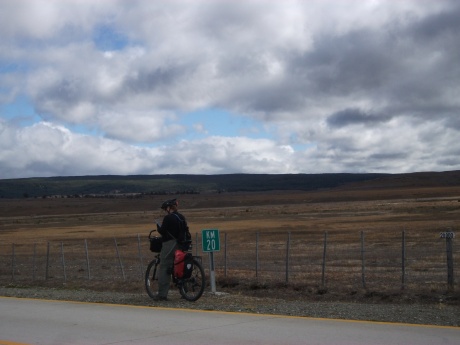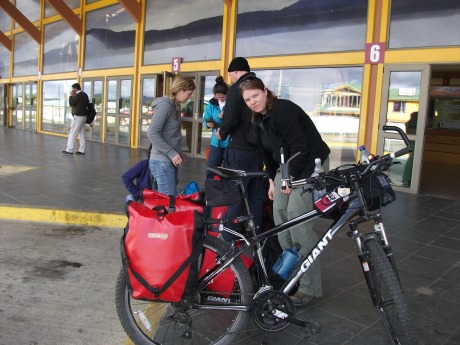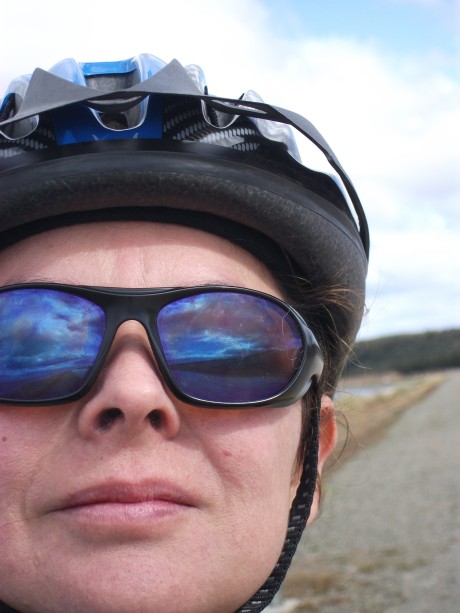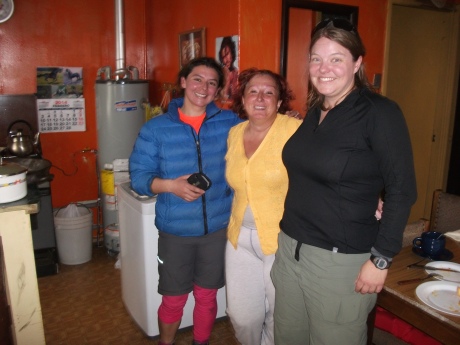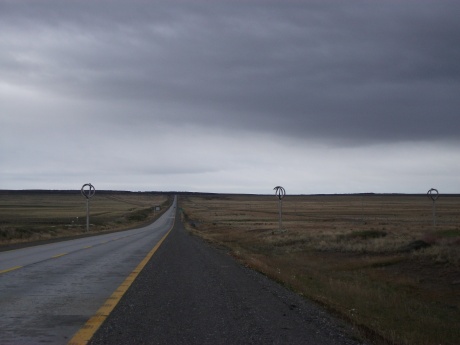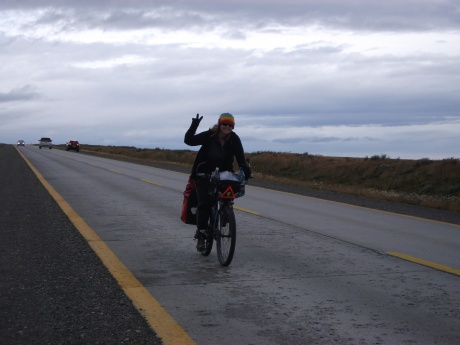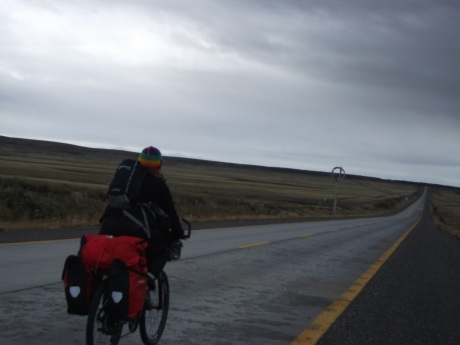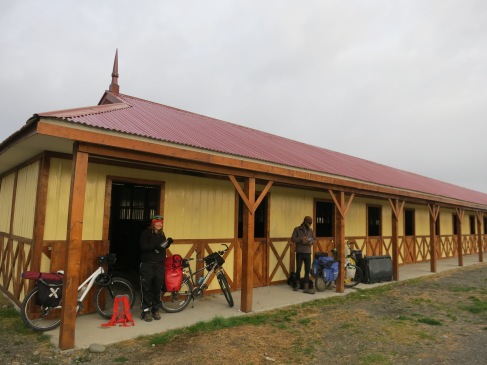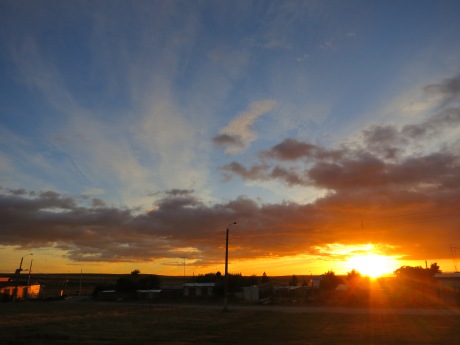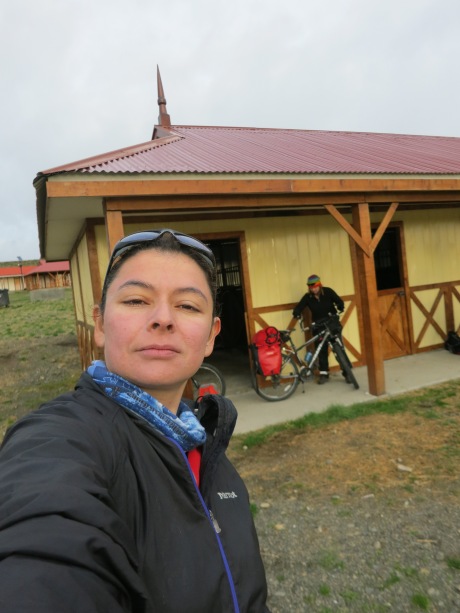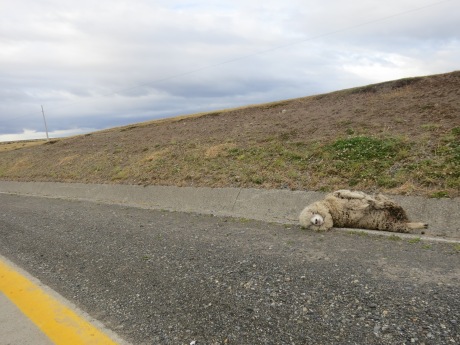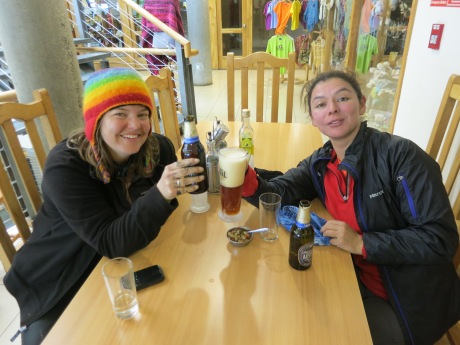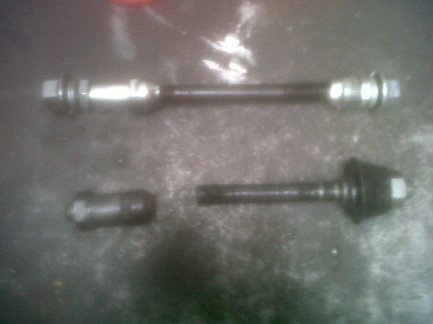
Broken axle, whole axle.
March 24, 2014
I am about to offend 25,000 residents and most of a nation, but I don’t really like the town of El Calafate, Argentina.
That’s mainly because it doesn’t really like me either. It’s one of those towns that exists to serve tourists, and is kind of bitter about it. They have dealt with one too many ugly American, one too many condescending European or clueless Israeli kid fresh out of military service. No, forget one too many, they have dealt with 20,000 too many, and that’s this year alone. And now you’re the 20,001st obnoxiously demanding person they have had to deal with and they are fucking over it. They are over you. They just want you to go away so their charming little village will have a little bit less obnoxious in it.
People come to El Calafate for one reason, and it is this:
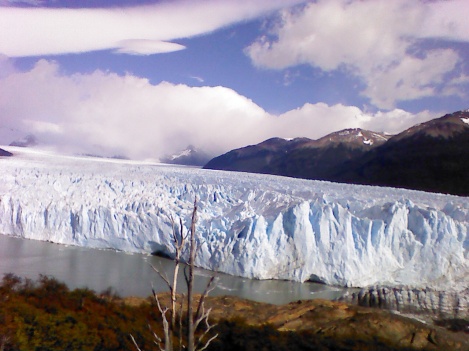
perito moreno!
OK, that is a crappy picture taken by my tablet, but just go Google Perito Moreno Glacier and you will see why people come here. Better yet, YouTube it and watch skyskraper-sized chunks of ice and rock splat into Argentina’s biggest and milky-teal-est lake. The glacier is stunning, tremendous, action-packed. It is worth being an annoying tourist for for a couple of days in El Calafate just to see it.
But I wound up staying here for many days, first because my bike broke, and then because my camera broke. For those who keep score, this is actually the second camera that I have broken on this trip, and it is not even mine—my dad lent me his, and I broke it. I ran out the door, a little late as always, and I hadn’t closed my backpack all the way, and it dropped onto the sidewalk and wouldn’t take any more pictures after that. It flashed “lens error” endlessly, which I took to be the blue screen of death for cameras.
As though to rub salt into the wound, I was on my way to go see that glacier, the most photogenic natural phenomenon of my trip.I wandered around for hours staring at it and feeling a profound sadness about my seemingly incurable carelessness, a carelessness that I have actually been trying hard to reign in on this trip, to no avail. That carelessness is the characteristic about myself I most abhor and feel most powerless to change. It is a source of tremendous frustration and grief to me, not to mention the people around me.
I had assumed that I was at fault for breaking the bicycle as well, since I am generally to blame when things break or disappear or otherwise malfunction around me, but it turns out my bike came with a crappy axle/hub system that is kind of famous for breaking under pressure. I immediately went to the town’s sole bike shop, but they did not want to help me, and got increasingly annoyed that I kept asking them to. They said they didn’t have the part, they couldn’t say when it would come in, if ever. No, there was no way to tell when it would come in, or to special order it. They wouldn’t sell me another wheel, although they had one, because they don’t sell wheels. They had no advice for me other than to wait around town for a few weeks and see if the part showed up.
This led to three days of frenzied calls to other bike shops in other cities trying to find someone who would send me a spare axle, a logistical nightmare. Also, asking every single person I met in El Calafate if they knew anybody who knew anything about bikes in Calafate other than the useless bikeshop assholes. In the end, I found someone who knew someone who was a bike hobbiest and might be able to help me, but he was on vacation. They pointed out his house though, and I took to walking by it several times a day, staring at it woefully, sometimes replacing the urgent note I’d left on his doorstep with a new and more urgent one.
Miraculously, this strategy worked. I walked by his house for the seventeenth time and noticed the note was gone. I literally ran up to the door and pounded on it. Can you fix my bike? I demanded of the young man who came to the door. He looked at me kindly. Come back at three, he said.
I did. It turned out that the young man was actually the bike hobbiest’s son, Cesar. He had come by the house to check on it while his dad was on vacation. His dad had taught him a lot about bikes, so Cesar thought he might be able to help me. He walked me back to his garage, which was like some kind of tool-lovers panacea, everything carefully organized and labeled in shelves and drawers, wheels hanging from the ceiling and a glass case protecting some special parts. He looked in a bag on a shelf near the floor and pulled out a spare axle.
I coulda cried.
Cesar was one of those quietly competent people that you meet and immediately wish they populated the world’s legislatures, because if they did, we wouldn’t be as screwed as we currently are. He was raised in Calafate and loves it here. He works in a government office that manages social welfare. I watched him treat my bike with great care and respect, slowly coaxing it back to health and functionality. He took about an hour to replace the axle and grease my break cables, chatting with me calmly and kindly as he did so.
He charged me $7 total. I tried to pay him more, but he was quietly insistent. No, that’s quite enough. Don’t worry. Have a good trip.
I rode back to my hostel with so much gratitude and gladness in my heart that it threatened to float away.
That was right before the camera broke, and my heart deflated again. Later, I learned that the lens error is common with this camera, caused by a manufacturing defect, and that Canon will fix it for free. But that didn’t really make me feel better. I still dropped it, and I was still reckless with something that’s not even mine, and I am still without a camera, and I am still a despicably careless person. For a while, I thought delusionaly that I might be able to get it fixed here in town, but it was pretty much like the bike story: There are two photography stores in town but both told me that they do absolutely no camera servicing, and there’s no one within 500 miles who does. I am pretty sure there is some Cesar of cameras somewhere in this town, and I just need to find him or her, but I cannot stomach being an annoyance to these people any longer than I already have been, so I am biking out in the morning. I bought a disposable camera.
Goodbye, Calafate. I hope one day you let Cesar run things for you.
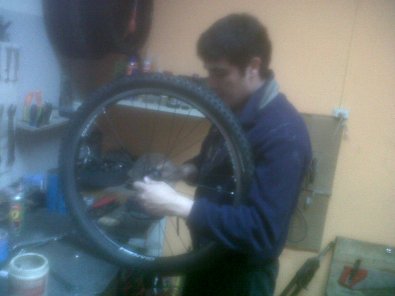
Cesar, fixing my bike.
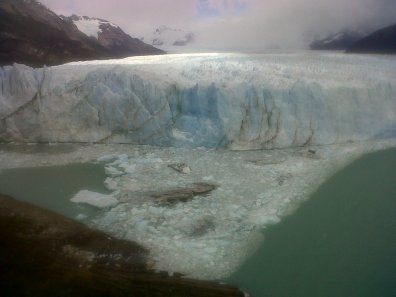
Glaciers are cool.
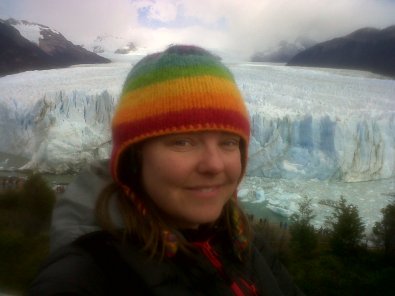
Me, actively trying not to look sad.
